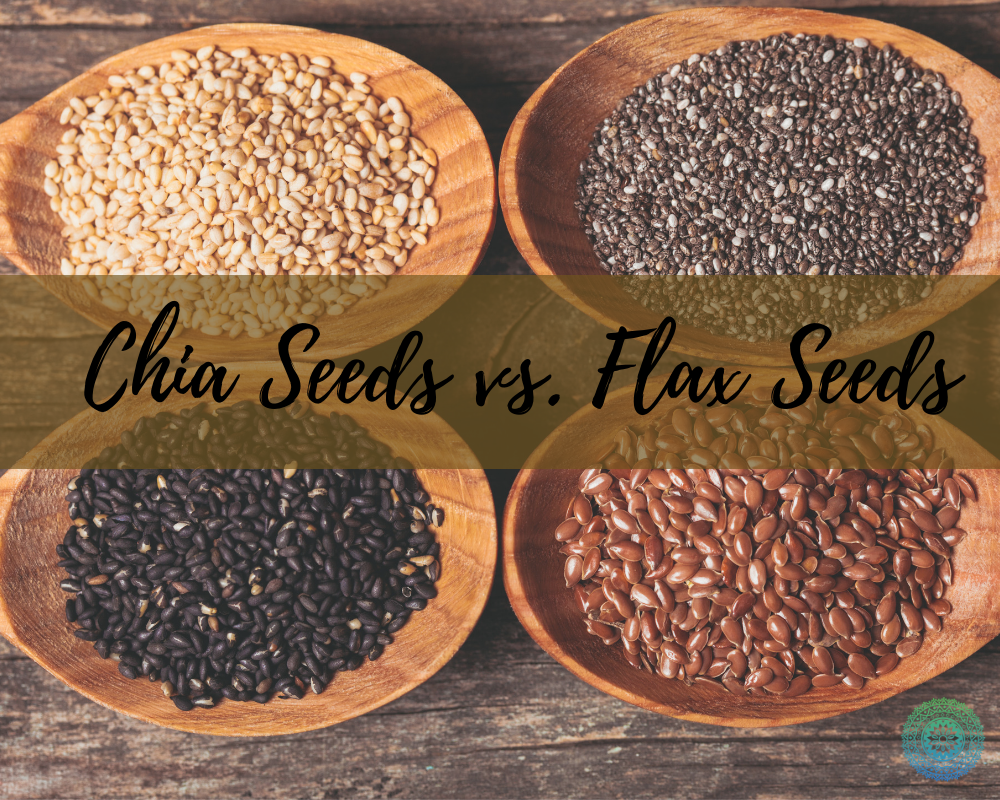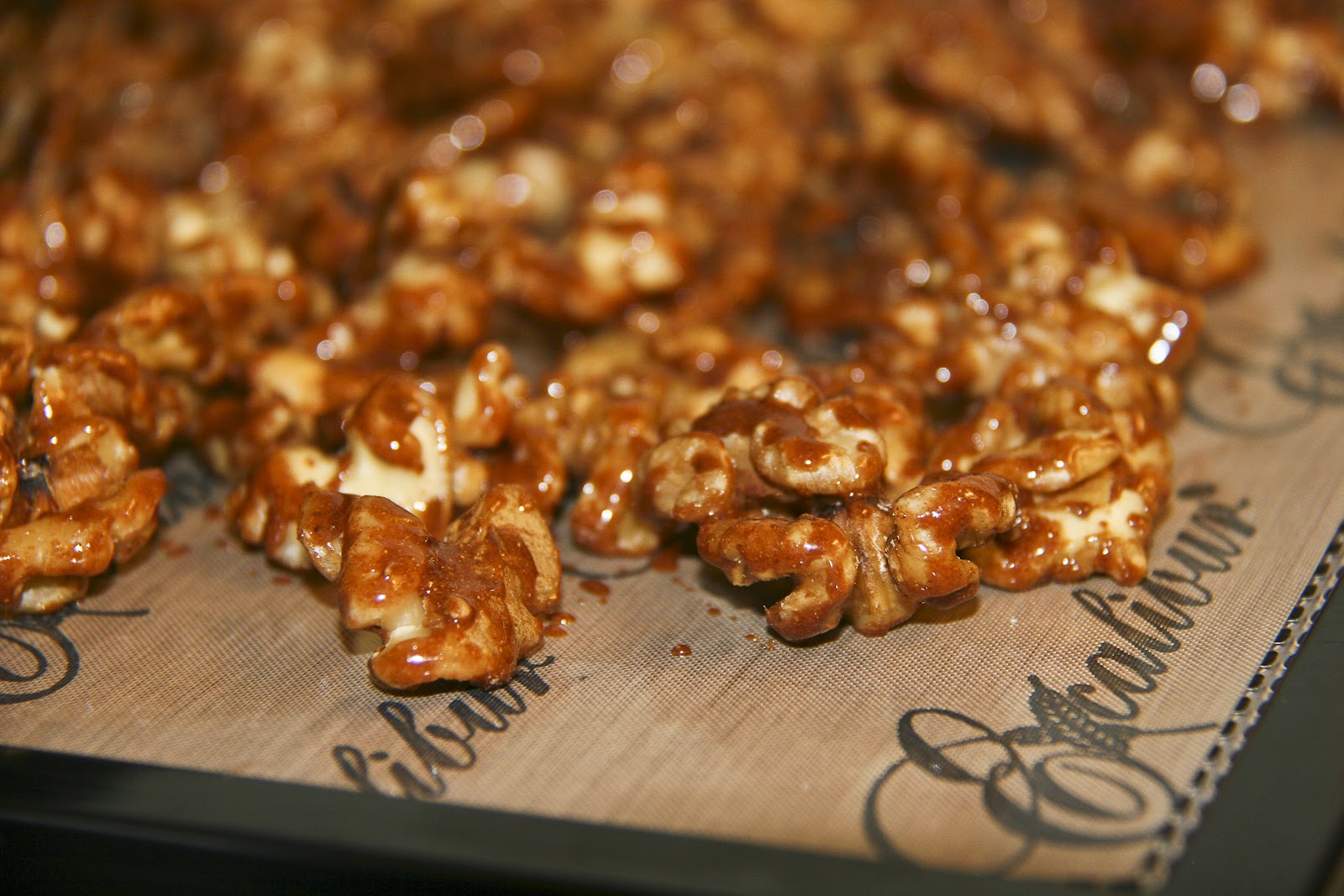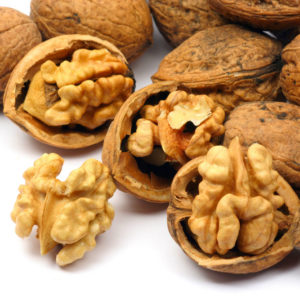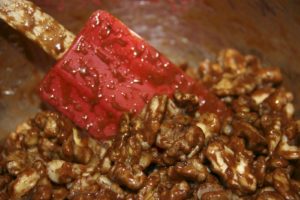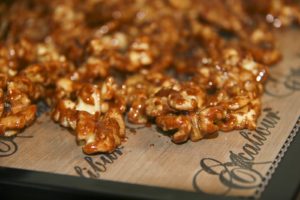These little guys, chia seeds and flax seeds, top the list of superfoods. They are both easy to add to your salads or smoothies for a nutritional punch. But is one better than the other? Let’s compare.
Benefits of Flax Seeds vs. Chia Seeds
- Both flax seeds and chia seeds contain lots of fiber and the type of omega-3 fatty acids called alpha-linolenic acid, or ALA. Flax is a better source of ALA than chia seeds, although chia seeds also have many health-promoting effects. One ounce of flaxseeds contains about 6,000 milligrams of ALA compared to about 4,900 in the same amount of chia seeds.
- Chia seeds are small, round, either white or black seeds that originated thousands of years ago in Mexico and South America. Like flax, chia can absorb lots of water, contribute to the feeling of fullness, prevent constipation, and help with digestive health. This helps you feel satiated longer and not reaching for unhealthy snacks between meals.
- Flaxseeds contain less fiber than chia seeds. Flax has about eight grams of fiber in one ounce compared to about 11 grams in one ounce of chia seeds. Both form a gel during digestion when combined with liquid, which blocks the fiber from releasing sugars and being fully broken down. This helps with blood sugar control, forming bowel movements, and lowering cholesterol.
- Only flaxseeds contain high levels of lignans, while chia seeds do not. However, chia seeds have other antioxidants, especially black chia seeds, which are very nutrient-dense.
- Chia seeds contain more calcium than flax seeds do, making them a good addition to a vegan/plant-based diet. They also provide other vitamins and minerals, like zinc, copper, phosphorus, manganese, magnesium and potassium (similar to flaxseeds).
- Flaxseed protein levels are impressive, with slightly more than chia seeds, although both are good sources.
- Chia seeds can be consumed in any form, while flax should ideally be sprouted and ground. Flax are more susceptible to going rancid over time, so they should be kept in the refrigerator to prolong their freshness. Both are very useful in gluten-free or vegan baking and cooking.
|
| Chia Seeds/2 Tbsp. | Flax Seeds/2 Tbsp |
| Calories | 122 | 110 |
| Protein | 4g | 4g |
| Complete Protein? | Yes | No |
| Fiber | 6.9g | 4g |
| Omega 3 (EFA) | 5,000mg | 2,700mg |
| Calcium | 18% of RDA | 4% of RDA |
| Magnesium | 23% of RDA | 14% of RDA |
| Trace Minerals | Yes | Yes |
| Taste | Faintly nutty/ Earthy | Whole grain/Nutty |
| Storage | Keep for 2 years | Spoil quickly |
| Versatility | Don’t need to grind | Must grind |
| Gluten | Gluten-free | Gluten-free |
Ways to Use Chia Seeds
Did you know chia seeds are from a species of flowering plant in the mint family? They are native to areas of Mexico and Guatemala but are commonly cultivated in many areas in North and South America.
Check out the easy ways to incorporate them into your daily diet!
Chia Gel: Chia seeds absorb water quickly (up to 10 times their weight in liquid!). Place ¼ cup seeds in 1 cup liquid, stir well, and cover. Allow to sit for about 15-20 minutes until the texture changes to a soft gelatin. Store in refrigerator for up to one week. Add to smoothies and soups to boost nutrient value and create a thicker, more satisfying consistency.
Chia Pudding: To make a dessert variation, mix ¼ cup of seeds with one cup of liquid such as milk (almond, soy, or dairy all work) or 100% fruit juice. Allow to sit for at least 15 minutes refrigerated. Add nuts, chopped fresh fruit, or cinnamon if desired.
Chia Sprouts: Place chia seeds in a single layer (use only about a teaspoon to allow enough space to grow) in a terracotta saucer or unglazed clay dish. Spray the seeds with water several times and cover with plastic wrap or a clear glass dish. Put in a sunny spot. Spray morning and evening until green sprouts appear, about 3-7 days. Use these microgreens to garnish salads and sandwiches.
Egg Replacer: This may be used to replace whole eggs in baking. For 1 whole egg, mix 1 tablespoon of whole chia seeds or 2 teaspoons ground chia seeds with 3 tablespoons water. Allow to sit for at least 5 minutes or until the mixture thickens to the consistency of a raw scrambled egg.
Depending on what source you check out, either could win out. If you had to choose based on the above comparison, it looks like chia seeds win out, but not by a landslide. Use both. Each have their own nutritional benefits and are an easy addition to your healthy diet where variety is key.
